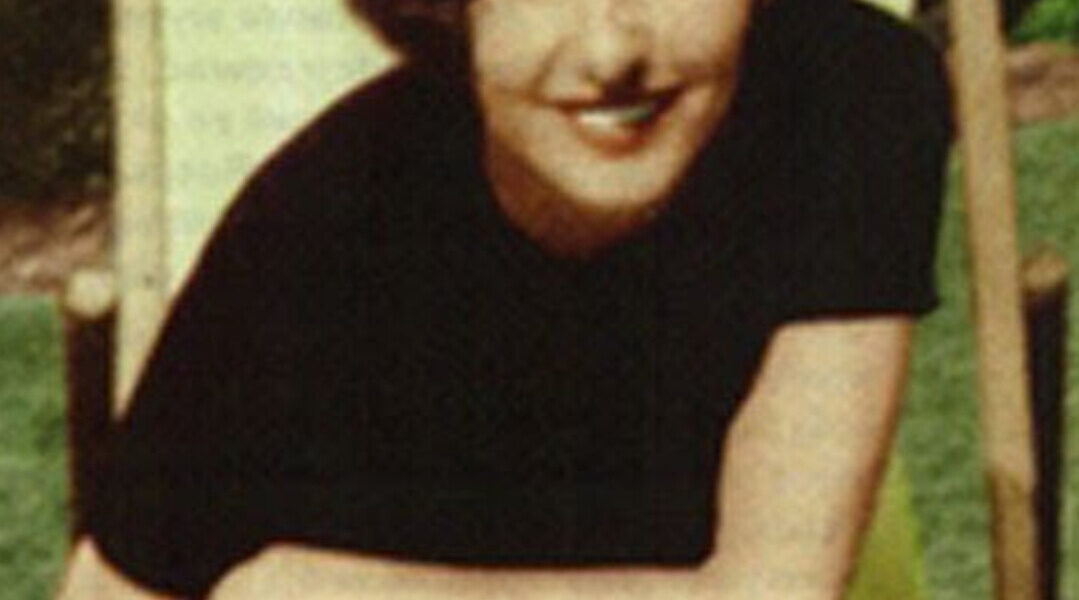When Nazi Germany invaded Poland in September 1939, the world seemed to collapse overnight. Families were shattered, soldiers scattered, and resistance seemed impossible against Hitler’s armies. But among those who refused to bow was a woman named Krystyna Skarbek, born into Polish nobility, fiercely patriotic, and utterly unwilling to watch her country die.

She fled across Europe, eventually reaching England. While many Polish refugees grieved and waited for the war to pass, Krystyna had other plans. She went straight to British authorities and volunteered herself as a spy. She was not content to sit safely in exile—her heart burned to fight.
Not only did she volunteer, she came with a mission already mapped out. She proposed to travel to Hungary, print propaganda flyers, and then ski through the mountains into occupied Poland to deliver them to her countrymen. From there, she would help organize the resistance and run intelligence operations against the Germans. It was bold, dangerous, and seemed impossible—but that was exactly what made her the right fit for the newly formed Special Operations Executive (SOE), Britain’s covert organization dedicated to sabotage and resistance behind enemy lines.
In December 1939, she set out for Budapest. From there, she made the treacherous ski journey into Poland. Against all odds, she succeeded. Soon, Krystyna was operating in Warsaw itself, distributing materials, gathering intelligence, and helping the underground Polish resistance smuggle messages and supplies. Her success did not go unnoticed. In train stations and on posters across Poland, her face became infamous. The Gestapo plastered rewards for her capture—proof of both her effectiveness and her growing legend.
As the danger grew, she adopted a new identity: Christine Granville. Under this name, she carried out some of the most daring exploits of the war.

In 1941, her luck seemed to run out. She was arrested by the Gestapo, accused of espionage. For many spies, capture meant torture and death. But Christine was resourceful. She bit her tongue until her mouth filled with blood and pretended to suffer from advanced tuberculosis. Coughing and spitting blood, she convinced her captors that she was gravely ill and not worth keeping. They released her, unknowingly letting one of the Allies’ most dangerous operatives slip through their fingers.
She fled and eventually reached SOE headquarters in Cairo, Egypt. But her life was never simple. Suspicions arose that she might be a double agent. For a time, she was sidelined while investigators pored over her record. In the end, she was cleared—her loyalty unquestioned—but her superiors judged it too risky to send her back into Poland or Hungary, despite her own willingness to return.
By 1944, Christine was parachuting into France as part of the Allied effort to strengthen the French Resistance ahead of the D-Day invasion. She quickly became a key figure, linking Italian partisans with French fighters to coordinate sabotage and intelligence-sharing. Her bravery was relentless.
One encounter near the Italian border became legendary. German soldiers stopped her at a checkpoint and ordered her to raise her hands. She did so calmly—and revealed a live grenade tucked under each arm, pins already pulled. With the slightest move, she could have blown them all to pieces. The Germans, shocked and terrified, fled, leaving her to walk free.
But perhaps her most celebrated feat came later in the war. Three British operatives had been captured by the Gestapo and were scheduled for execution. Most would have considered it hopeless. Christine did not. She marched into the lion’s den, confronted a Gestapo liaison officer, and negotiated their release—claiming she had 2 million francs to offer in exchange. Whether it was her steely resolve, her charisma, or the bluff of promised money, she pulled off the impossible. The three men walked free.
By the end of the war, Christine Granville had become one of the most decorated and legendary female spies in the Allied cause. Her courage, quick thinking, and iron will saved countless lives and inspired fear even in hardened German officers. Posters may have once promised rewards for her capture, but none ever succeeded.
After the war, though, Christine’s story took a bittersweet turn. Like many wartime heroes, she found civilian life far less glamorous. The world quickly moved on, and the daring exploits that had defined her years faded into the background of peace. But those who knew her never forgot the fearless Polish woman who had skied through enemy mountains, bluffed Gestapo interrogators, and held live grenades under her arms as if they were nothing more than apples.
Christine Granville remains a symbol of resistance, courage, and the unshakable will to fight for freedom. She showed the world that war was not only fought with guns and armies—it was also fought with intelligence, wit, and a heart that refused to quit.
She once said she didn’t fear death, only the thought of not truly living. And through every mission, every risk, every act of defiance, she lived more fully than most ever dream.




